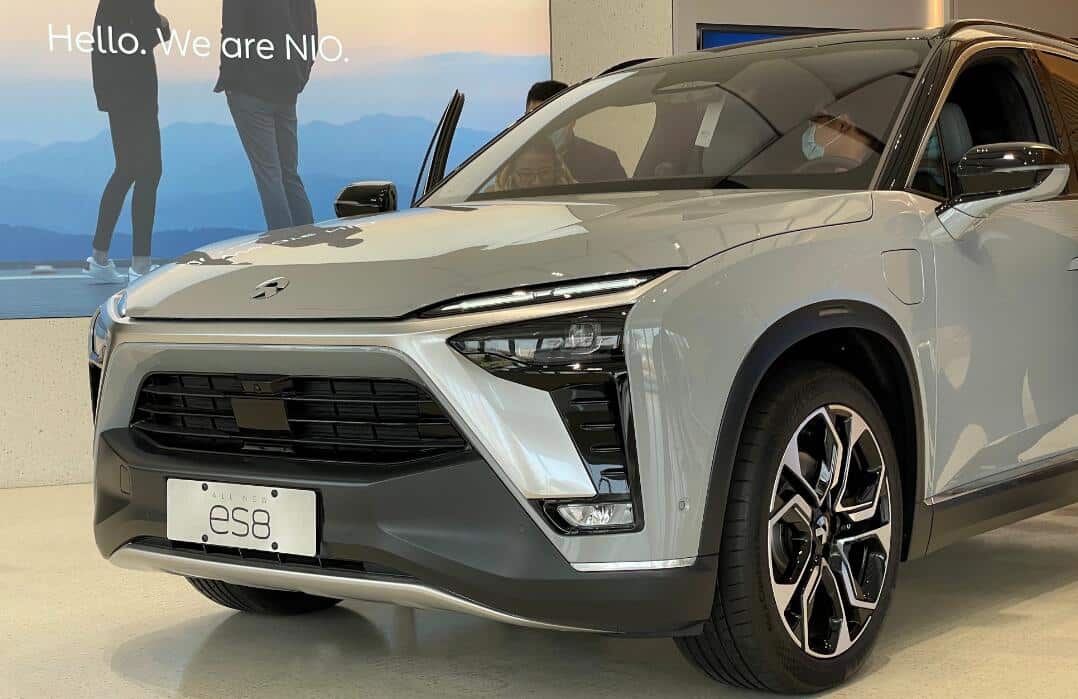Chinese electric vehicle maker Nio today reported unaudited financial results for the fourth quarter and full-year of 2020.
The company’s executives held a conference call after that. Here is what they said.
William Li, founder, chairman, and CEO of Nio talked about the company’s current development and futures plans at the subsequent conference call.
Mass market
Li said creating a new brand to enter the mass market is a possibility; however, the Nio brand will not enter the mass market.
Nio made an attempt a few years ago, for example, with Guangzhou Auto Group and Changan Automobile to aim for the mass market. “Currently, we have reduced our share ratio from 45 percent to 5 percent in the companies,” he said.
"We are actively looking at ways to enter the market dominated by Volkswagen more aggressively but this is a long-term strategy for us," Li stated.
Production capacity
Nio's monthly production capacity has been increased to 7,500 units and plans to achieve a single-shift capacity of 150,000 / double-shift capacity of 300,000 by the end of the year, Li said.
Due to the limitation of battery and chip supply, Nio can only deliver around 7,500 units per month, for now, he said.
The capacity of Nio Hefei factory is currently able to reach 10,000 units per month by way of double shifts, but the actual capacity can only reach 7,500 units per month at present under the supply chain constraints, Li said, adding that the supply chain capacity is expected to be increased from July onwards.
In the second quarter, the supply of batteries, especially the supply of 100 kWh, was indeed less than Nio hoped, and Nio expects that the battery production will reach the requirements in July, he said.
Chip shortage
Li said Nio has been in direct contact with its supply chain partners and even chip companies since the fourth quarter of last year.
Currently, the supply can generally meet Nio’s demand but the risk of shortage is still quite high, Li said.
Overseas markets
Nio will sell and provide service in Europe this year, and the related teams are being built, Li said.
In addition, the preparation of products and the preparation of sales and service networks are advancing, he added.
Entering the international market is a long-term job, and Nio has enough patience. "In the long run, we hope to have a significant share in all markets around the world," Li said.
Nio has established R&D teams in the U.S. and Europe, he said.
Nio has been studying the U.S. market for a long time and is still exploring business models and studying various possibilities. "We will definitely enter the U.S. market, but we are still waiting."
Model Y competition
Li said Tesla’s Model Y demand in China should be good in the short term. "Tesla often gets a batch of orders by cutting prices, we are focused on long-term solid demand growth. We are not going to take a pulse-like sales behavior, but we want to steadily increase demand."
Nio does not cut prices, and prices are very firm, which also brings us gross margin improvement, Li said, adding, "We are focused on a long-term strategy."
BaaS (Battery as a Service) accounted for a record 55 percent of Nio's new orders in February, which is a unique competitive advantage for Nio from this perspective, he said.
A long-term subscriber development strategy allows Nio to combat the entire cycle and not be as influenced by short-term factors as others, he said.
Future plans
Li said Nio invested RMB 2.49 billion in R&D in 2020 and plans to double that amount to RMB 5 billion in 2021.
Nio plans to build 20 new Nio Centers and 120 Nio Spaces in 2021, bringing the total number of stores to 366, he said.
Nio will start deploying second-generation battery swap stations in 2021, and the total number of swap stations will exceed 500.
Nio plans to build 600 super-charging stations and 15,000 destination charging piles by 2021, he said.
The ET7 sedan has outperformed any of Nio's cars in terms of bookings. Overall, for a car that starts at RMB 448,000, it has exceeded expectations, he said.
